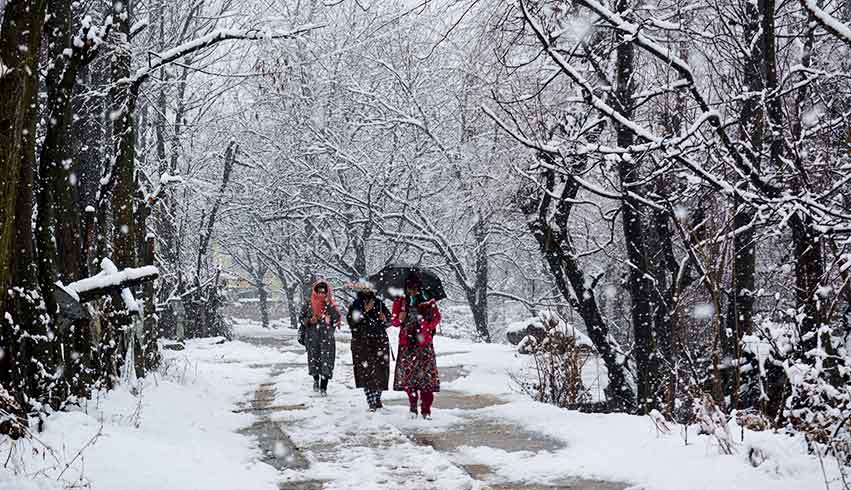Exploring Kashmir’s Rich Cultural Heritage
Kashmir, often referred to as “Paradise on Earth,” is not only known for its breathtaking natural beauty but also for its vibrant cultural heritage. The region has been a melting pot of diverse cultures, religions, and traditions, making it a unique destination for those interested in history and culture. With influences from Persian, Mughal, and Central Asian traditions, Kashmir’s cultural heritage is a captivating blend of art, architecture, crafts, music, and cuisine.
In this blog, we’ll explore the rich cultural heritage of Kashmir, which makes it a must-visit destination for anyone interested in history, culture, and traditions. Whether you’re planning a visit through Kashmir tour packages from Ahmedabad or considering a tailored Srinagar tour package, here’s why Kashmir is not just a scenic retreat but also a cultural wonderland.
1. The Influence of Mughal Heritage in Kashmir
Kashmir’s cultural heritage is deeply influenced by the Mughals, who ruled the region for several centuries. The Mughal emperors, especially Emperor Jahangir, were enchanted by Kashmir’s natural beauty and spent a significant amount of time in the region. Their influence can be seen in the stunning Mughal gardens, intricate art, and architectural splendor that remain preserved to this day.
The most famous of these gardens are the Shalimar Bagh, Nishat Bagh, and Chashme Shahi in Srinagar, which reflect the Mughal love for symmetry and aesthetics. These gardens are designed in the Persian style, with terraced landscapes, flowing water channels, and beautifully manicured lawns. Visitors can wander through these historical gardens and imagine the opulence of the Mughal court.
The Mughal influence also extended to Kashmir’s architecture. The Jamia Masjid in Srinagar, a stunning mosque built during Sultan Sikandar’s reign, is an architectural marvel that combines Persian, Central Asian, and local Kashmiri styles. With its intricately carved wooden pillars and stunning courtyards, the mosque is an important symbol of Kashmir’s Islamic heritage.
2. Kashmiri Handicrafts: A Reflection of the Region’s Artistic Excellence
One of the best ways to experience Kashmir’s cultural heritage is through its world-famous handicrafts. Kashmiri artisans are known for their meticulous craftsmanship, with skills passed down through generations. These crafts are not just souvenirs for tourists but also reflect the region’s deep connection to art and culture.
Pashmina Shawls: Kashmir is synonymous with luxurious pashmina shawls. Made from the fine wool of the Changthangi goat, pashmina is known for its softness and warmth. The shawls are often handwoven and embroidered with intricate designs, making them a prized possession. These shawls are the perfect example of Kashmiri craftsmanship at its finest, and no trip to Kashmir is complete without bringing home a genuine pashmina.
Kashmiri Carpets: Another highlight of Kashmiri handicrafts is the region’s famous carpets. Known as Kaleens, these handmade carpets are woven with intricate patterns and often take months to complete. The carpets are traditionally made from silk or wool and are adorned with floral and geometric designs that have been inspired by Persian and Central Asian art. Each carpet tells a story, making them not just decorative pieces but valuable works of art.
Papier-Mâché Art: Papier-mâché is another popular craft in Kashmir, where artisans transform simple paper pulp into beautiful decorative items like vases, boxes, and ornaments. These items are painted with vibrant colors and embellished with intricate designs, often depicting flowers and birds. The art form has Persian roots but has evolved into something uniquely Kashmiri over the centuries.
Visitors interested in experiencing these arts firsthand should include shopping trips in their Srinagar tour package, where local markets like Lal Chowk and Polo View Market offer an array of authentic Kashmiri handicrafts.
3. The Unique Sufi Tradition of Kashmir
Kashmir has a deep-rooted connection with Sufism, a mystical branch of Islam that emphasizes love, compassion, and unity. Sufi shrines, known as Khanqahs, are scattered throughout the region and are an essential part of Kashmir’s spiritual and cultural identity. These shrines are not only places of worship but also serve as cultural hubs where music, poetry, and art are celebrated.
One of the most important Sufi shrines in Kashmir is the Hazratbal Shrine, which is located on the northern shores of Dal Lake in Srinagar. The shrine is home to a sacred relic, believed to be a hair strand of Prophet Muhammad, and is a place of pilgrimage for Muslims. The Khanqah-e-Moula in Srinagar, dedicated to the Persian Sufi saint Mir Sayyid Ali Hamadani, is another significant site where Sufi traditions are kept alive.
Sufi music, also known as Sufiana Kalam, is a prominent part of Kashmir’s cultural landscape. This form of devotional music often includes the use of traditional Kashmiri instruments like the Santoor and Rabab and is accompanied by poetic verses that evoke themes of love, spirituality, and the divine.
Exploring these Sufi shrines and attending a Sufiana Kalam performance offers travelers a profound insight into the spiritual and cultural heritage of Kashmir.
4. Kashmiri Cuisine: A Flavorful Cultural Experience
Kashmir’s cultural heritage is not complete without mentioning its rich and flavorful cuisine. Heavily influenced by Persian, Central Asian, and Indian culinary traditions, Kashmiri food is known for its unique flavors, the use of fragrant spices, and slow-cooking techniques.
One of the most iconic dishes of Kashmiri cuisine is Wazwan, a multi-course meal that is often served during weddings and special occasions. Wazwan includes several dishes like Rogan Josh (a lamb dish cooked in a rich red curry), Yakhni (a yogurt-based meat curry), and Gushtaba (meatballs cooked in a creamy sauce). The meal is a true reflection of Kashmiri hospitality and culture, and no trip to Kashmir is complete without savoring these traditional dishes.
Another must-try dish is Kahwa, a traditional Kashmiri tea made with green tea leaves, saffron, cardamom, and almonds. This fragrant tea is often served during social gatherings and is a symbol of Kashmiri warmth and hospitality.
Visitors can explore the culinary heritage of Kashmir by dining at local restaurants and enjoying home-cooked meals during their Kashmir tour packages from Ahmedabad. A visit to Srinagar’s local markets will also introduce travelers to local produce like saffron, dried fruits, and Kashmiri spices, which are integral to the region’s cuisine.
5. Kashmiri Festivals: A Celebration of Culture and Tradition
Kashmir’s vibrant culture comes to life during its festivals, which reflect the diverse religious and cultural traditions of the region. From Islamic festivals like Eid-ul-Fitr and Eid-ul-Adha to Hindu festivals like Herath (Maha Shivratri) and Navroz (New Year), the people of Kashmir come together to celebrate these events with joy and enthusiasm.
Tulip Festival is one of the most unique festivals in Kashmir, held annually in April at the Indira Gandhi Memorial Tulip Garden in Srinagar. This festival celebrates the blooming of thousands of tulips, creating a stunning display of colors against the backdrop of the Zabarwan Range. The festival is a visual treat and showcases Kashmir’s natural beauty, along with its cultural vibrancy through local music, food, and art.
For those booking a Srinagar tour package, visiting Kashmir during one of these festivals provides a deeper connection to the region’s cultural heritage and its people.
Conclusion
Kashmir’s rich cultural heritage is an intricate tapestry of art, music, architecture, and traditions that have evolved over centuries. From the opulent Mughal gardens and intricate handicrafts to the spiritual Sufi shrines and flavorful cuisine, Kashmir offers a cultural experience like no other. When planning your trip, make sure to consult a travel agent in Ahmedabad to curate an itinerary that allows you to fully immerse yourself in the cultural wonders of this remarkable region.
For travelers from Gujarat, Kashmir tour packages offer a convenient and enriching way to explore both the natural beauty and the cultural heritage of this paradise on earth.














Post Comment